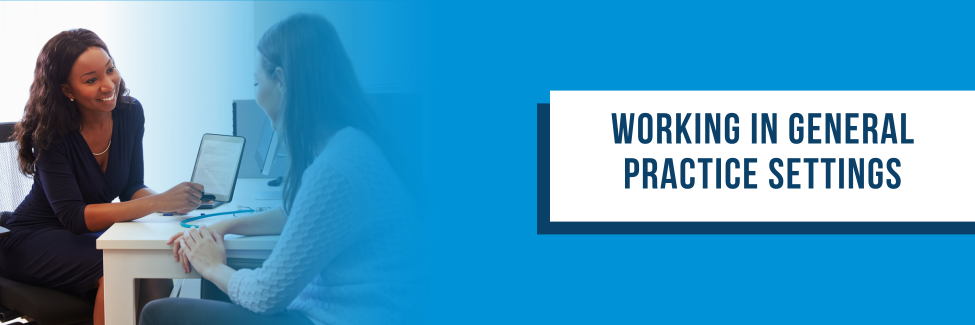In this issue:
- Developments within the PDA…
- Pharmacists working in general practice settings and how the PDA can help them
- My journey to becoming a PDA Rep following a TUPE transfer
- On-call: how can the PDA work with members on this issue?
- PDA submits evidence to the NHS Pay Review Body
- PDA Hospital Reps met to discuss improving the working conditions for members in the NHS
- What’s wrong with on-call?
- Get involved
- Attend an upcoming face-to-face event!
- In case you missed it

Developments within the PDA…
Last Autumn, GP pharmacists met to hear the results of the GP work satisfaction survey and discuss the issues that they face in the workplace and how they can work together to tackle them. In November 2023, members who work in ICBs also met to hear about the impact of the Department of Health’s requirement to reduce running costs by 30%.
In February 2024 we met with hospital pharmacists to gather your views on Proposal 3 of the Department of Health and Social Care consultation on pharmacy supervision which covers aseptic services. This really helped the PDA gain a view from those who have specialist knowledge of the issue and the risks the government’s proposal could cause if enacted.
The PDA is pleased to announce that Una O’Farrell, PDA National Officer, will now be working with PDA members in GP practices. Una is a pharmacist and already supports members working in the GP Federations in Northern Ireland. If you wish to speak with Una please email organising@pda-union.org.

Pharmacists working in general practice settings and how the PDA can help them
As more and more pharmacists are working in general practices (GPs) and primary care networks (PCNs), especially in England, the number of challenges and issues pharmacists face in this sector are also increasing.
The PDA launched a general practice work satisfaction survey in May 2023 and the survey results highlighted a few areas of concern such as, inadequate induction, lack of protected learning time, being given tasks that are outside their scope of practice or competence, excessive workload and pay not being reflective of their current expertise, experience, and competence.

My journey to becoming a PDA Rep following a TUPE transfer
PDA NHS Rep and GP pharmacist, Dagmara Cieniawska has shared her personal experience of how the PDA supported her transition between organisations via a Transfer of Undertakings and Protection of Employment (TUPE).
I had worked for Boots since 2010, having various roles, the latest one being a manager of a Community Anticoagulation Service. In the spring of 2023, the team and I had been informed that the Community Anticoagulation Service was going to change providers and according to the employment law, colleagues who worked predominantly for the service were being transitioned to the new provider, Bromley GP Alliance (BGPA).

On-call: how can the PDA work with members on this issue?
The PDA has been looking into some of the issues that members working in hospital face. One such issue that has surfaced time and time again has been the conditions around being on-call.
The PDA’s survey for hospital members highlighted ‘pressure and mental health concerns’ as the primary reason that hospital members were looking to change their role or employment status. This is not necessarily exclusive to issues around on-call but following representative feedback, we know these issues are at the forefront given inconsistent policies, the difficulties in maintaining a healthy work/life balance and lack of adequate compensation for the disruption it can cause.
Over the coming months, the PDA will be releasing a series of articles written by PDA Reps around their experiences of being on-call. The PDA has previously spoken about the issue of on-call policy being devolved to a local level which led to many disparities across the country and difficulties for pharmacists to fully understand the scope of on-call and negotiate reasonable terms.
Although the situation is quite the same, the context has most definitely changed, more than 10 years on there have been many shifts in the healthcare landscape, the most recent and predominant being the Covid-19 pandemic. These issues have brought different pressures on the NHS with an immense backlog and an increase in ward-level workload. All these factors impact on members’ working conditions and ability to practise safely.
The forthcoming articles will highlight members’ experiences around being on-call.

PDA submits evidence to the NHS Pay Review Body
Pay Review Bodies (PRB) are independent panels that gather evidence and then provide the government with advice each year on pay for many public sector workers. Having received advice from the relevant PRB, national governments then decide the levels of public sector pay.
There is a PRB for NHS employees.
Our submission to the RPB can be found here.

PDA Hospital Reps met to discuss improving the working conditions for members in the NHS
In February 2024, PDA Hospital Reps met to discuss their work, areas of concern, and how to support each other. The meeting also gave the reps the opportunity to discuss how they can work together to improve the working conditions for members in the NHS.The number of PDA Reps in hospitals has significantly grown in the last twelve months, with reps joining from hospital trusts across the UK.
Newer reps met with longstanding reps and learned how to connect with members, how reps have organised to secure local recognition for pharmacists, and how the PDA can work together with other unions to achieve improvements in working conditions for members in the NHS.

What’s wrong with on-call?
I have been in a situation before where I had to go to work between 3 am and 5 am to sort out a broken pharmacy fridge and I then had to negotiate with senior managers to leave work early that day to get some rest. I’m not sure how I managed to get through even half a day without making a mistake. Time off in recognition of being called out was an informal arrangement and only ever allowed if there was sufficient staff available to cover. Some hospitals might let you start a bit later, but those one or two hours extra you may get to rest don’t always help you get over a broken night’s sleep.
The working time directive stipulates that you should have an 11-hour rest break between one shift and the next, however, hospitals can utilise a loophole that means they do not need to adhere to this as they need to ensure continuity of service. The GPhC standards for pharmacy professionals (Standard 5) also states that we must only practice when fit to do so. This can be difficult to uphold when your employer is expecting you to work without sufficient rest. Appropriate rotas should be devised to ensure staff have a day off after an on-call shift which some hospitals do have in place. However, as each trust can devise their own system, most do not. You also need to ensure you work an extra day at another time, to make up for the hours lost.
Get involved
The PDA also has four Equality, Diversity, and Inclusion (EDI) Networks available for members to join. All networks welcome allies and PDA Student and PDA Trainee members can join for FREE. More information can be foundhere.We encourage you to forward this newsletter to colleagues who you feel may find it interesting and if they are not yet members of the PDA and wish to join they can do sohere.
Attend an upcoming face-to-face event!
Shaping pharmacy: a development day for PDA Reps and active members
We are pleased to share a brand-new event for all members who are actively involved with the organisation. All PDA Reps, Regional Committee members, and EDI Network members are invited to this face-to-face event.
Date:Saturday 27 April 2024
Time: 9.30 am – 3 pm
Location: Birmingham (exact location announced in coming weeks)
Price:FREE
Learn more and register today by clickinghere!
In case you missed it
|
|
|
